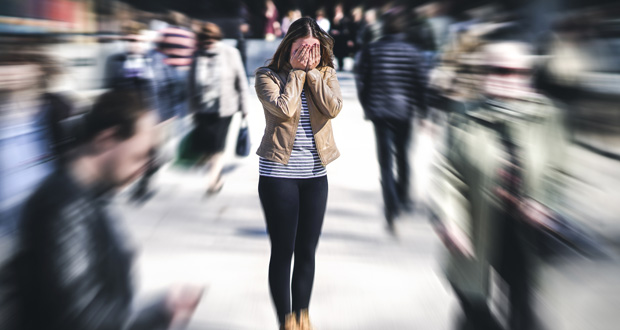Amelia Morris and countless other mentally ill Victorians are waiting to see how the state's royal commission will fix a broken system.
Public hearings for the inquiry into mental health care in Victoria wrap up on Friday, following four weeks of evidence about desperately ill people asking for help only to find it doesn't exist.
Ms Morris – who has anxiety, depression and attention deficit hyperactivity disorder – says she was brushed off as a "dramatic teenage girl" after trying to take her life at age 16.
"When I took that really, really difficult step, that really heartbreaking step of trying to ask for help, there was really nothing there for me," the now 21-year-old told Victoria's mental health royal commission this month.
"I was kind of greeted with silence in return."
The commission's final public hearing on Friday follows evidence from more than 90 witnesses including farmers, refugees, politicians and health professionals about stigma, suicide prevention and barriers to getting help.
Despite the challenges raised, commission chair Penny Armytage said there was a sense of hope about mental health reform in Victoria.
"It is truly a testament to human kindness, resilience and commitment, that individuals have taken it upon themselves that if they help one person through this process, that's a win," she said.
"There is a certain weight to the responsibility before us, but neither I or my fellow commissioners shy away from that challenge – we know what is at stake and we will work hard to generate genuine change."
The Andrews Labor government has committed to implementing all the inquiry's recommendations when it hands down its findings in October 2020.
An interim report is due by November 30 this year.
Former Victorian health minister Robert Knowles says $1 billion is needed to bring the "appalling" system up to scratch.
He adds the focus must be on community-based services, rather than just creating more hospital beds, and on children under the age of 12.
"That's where 50 per cent of mental health issues first emerge," Knowles told AAP this week.
Ms Morris, who eventually found treatment which helps, is among those demanding change so others don't have to go through what she did.
"When you take that very difficult step of asking for help and there is just nothing there, it makes you feel very hopeless and like you're really never going to get better."
Do you have an idea for a story?Email [email protected]
 Aged Care Insite Australia's number one aged care news source
Aged Care Insite Australia's number one aged care news source

